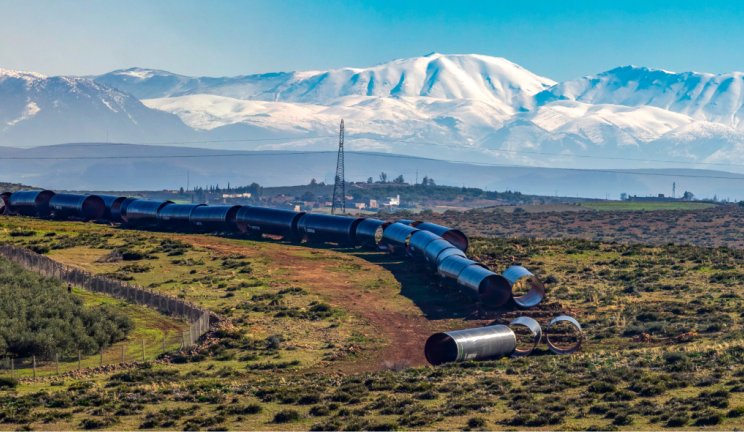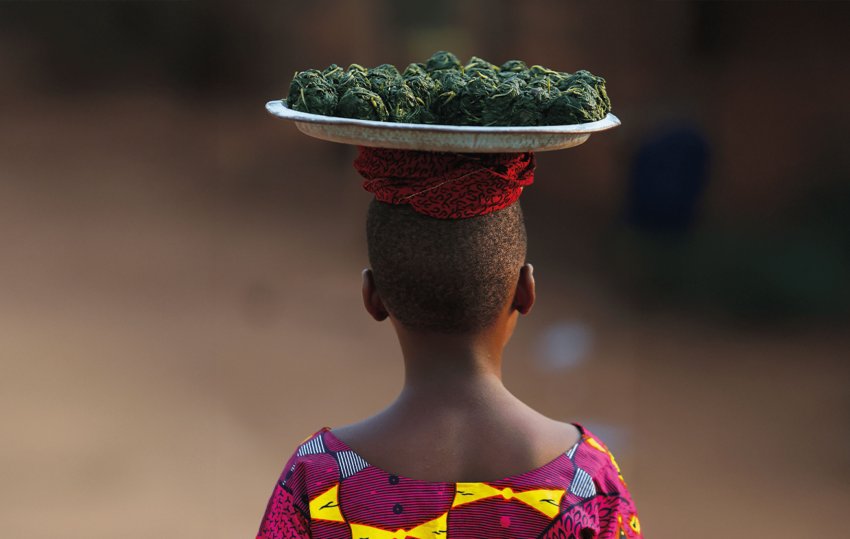The small steps strategy of the ISSA social programme in Africa
Sogea-Satom (VINCI Construction), a leading player in Africa’s construction industry, is taking action outside its business activities to foster local economic and social development through its ISSA programme. Read on for an interview with Lise Carmen Batiana (Programme Leader in Côte d’Ivoire), Dame Ndiaye (ISSA Ambassador and Financial & Administrative Director at Sogea-Satom Sénégal) and Virgil Satge (Director of the Kuabo garage school in Benin).
Sogea-Satom has been active in the African continent for 100 years, with its activities spanning the construction, roads and earthworks, hydraulics, civil engineering and energy sectors. The company has acquired intimate insights into the continent’s countries and their culture. Sogea-Satom’s employees are involved in a wide range of missions and works, including developing urban areas like the Cotonou promenade in Benin that borders the lagoon and ocean, building engineered structures such as the Sendje Bridge in Equatorial Guinea, and constructing hydraulic infrastructures like the water treatment and supply plant on the Kagera River in Uganda. In addition to these projects, employees are focused on contributing to the local development of their host regions through the “Initiatives Sogea-Satom pour l’Afrique” (ISSA) social development programme (Sogea-Satom Initiatives for Africa).
What role does the ISSA programme play?
Dame Ndiaye : Sogea-Satom helps improve living conditions by building essential infrastructures to support the countries’ economic activities and improve everyday life for inhabitants. The ISSA programme reflects our commitment to take even greater action. We are involved in fostering development in the local communities. I firmly believe in the effective role that local projects can play with targeted funding combined with long-term support for project leaders. ISSA currently prioritises economic projects to give people a greater sense of independence. A standout example is the bakery project in Casamance, Senegal. The project was led by six people with disabilities who were newcomers to the profession. Their bakery now produces 3,000 loaves of bread a day, employs 15 people and generates 45 indirect jobs.
Lise Carmen Batiana : ISSA perfectly embodies the ambitions behind VINCI’s global performance strategy by combining the technical aspects of our projects with tangible action to deliver local support to the different communities with their projects. Since it was created, the scheme has assisted 383 projects in 22 countries, with a positive impact on over 235,000 people.
What does ISSA specifically bring to local project leaders?
Lise Carmen Batiana : We finance and support cooperatives, collectives, microbusinesses and projects, ranging from building classrooms to drilling wells and helping create viable enterprises. ISSA has a lever effect by giving entrepreneurs a much needed financial contribution at a time when extremely high interest rates are leading to prohibitive microcredit and bank loan costs. This helping hand has culminated in some remarkable entrepreneurial ventures, such as the attiéké (cassava semolina) transformation business by a women-run collective in Côte d'Ivoire. Chad is another example, where ISSA has financed the creation of a specialised traditional shoemaking workshop that also trains and employs young people.
Virgile Satge : ISSA played a decisive role in the success of our Kuabo garage school project led by Vitamine T, a work integration social enterprise based in northern France. Our garage is located in the suburb of Cotonou and trains young people from humble backgrounds to become car mechanics in a country with a major used car market. In addition to granting financial support,
the guidance given by Sogea-Satom proved to be especially valuable. Their teams offered advice on safety and quality issues, and provided logistics help for unloading and installing equipment weighing several tons.
What impact has ISSA had?
Virgile Satge : ISSA’s contribution was instrumental in successfully launching our garage school project. The venture has got off to a flying start, and we already have our first class of 16 apprentices. Our goal is to quickly double our workforce. We are on the right track for making a success of our project to create a car garage that improves employability prospects for young people to secure a long-term job. The initial results are encouraging, and our apprentices are highly involved, most of whom have already been promised jobs in the best garages in Benin.
Lise Carmen Batiana : ISSA acts as an amplifier. By supporting 30 projects every year with an average budget of €20,000 for each project, we manage to create several direct and indirect jobs, while giving project leaders a greater sense of economic independence. A recent study credited ISSA with creating 794 direct jobs. BioPhyto is a striking example. This manufacturer of organic fertiliser and agricultural biopesticides currently markets its products in seven countries. In the beginning, we gave them a few items of equipment and a tricycle!
Dame Ndiaye : What makes ISSA so special is its ability to reach out to small local communities. We give them the impetus to develop their own ideas based on the real-life projects led by motivated people. ISSA is a source of inspiration and a cost-effective way for getting people out of poverty by supplying equipment and providing training. By spreading from one village to the village, the impact is instantly tangible and measurable.
Subscribe
Stay tuned : receive our newsletter
Every quarter, discover new articles, exclusive features and experts' views delivered straight to your inbox.
Most viewed
Explore more

Marina Lévy - Companies at the heart of ocean conservation issues
Marina Lévy, oceanographer, research director at the CNRS and ocean advisor to the president of the French National Research…

Access to water in Africa: persistent challenges despite major progress
When looking at the situation of safely managed water supplies in Africa, the glass could be seen as half full, rather than…

Building with and for nature
Whether creating barrages, stripping away topsoil, cutting down trees or digging channels, humans have spent thousands of…



